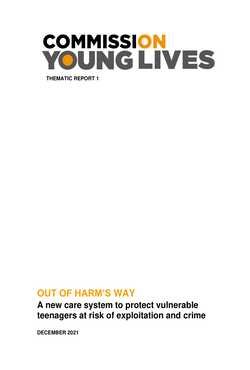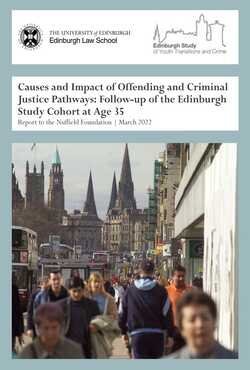Out of Harm's Way: A new care system to protect vulnerable teenagers at risk of exploitation and crime
By The Commission on Young Lives
There is an ongoing epidemic of drug-running, grooming and serious youth violence in England. Harmful criminal exploitation is now an ever-present reality of some childhoods. It involves tens of thousands of marginalised and vulnerable young people, brings misery and destroys lives and prospects. Recent government statistics show that last year almost 13,000 children in England were identified by social services as being involved with gangs, thousands more sexually exploited. Yet this is just the tip of the iceberg, the children who we know about. There are many thousands of others growing up surrounded by addiction issues, domestic violence, serious parental mental ill health, or poverty. Frequently they go unsupported and invisible to the agencies who should be able to protect them. They are the children most likely to fall through gaps in the education or care systems, and who can end up exploited by the ruthless organised criminals or abusers who have such a talent for spotting the most vulnerable.
London: The Commission on Young Lives, 2021. 63p.



